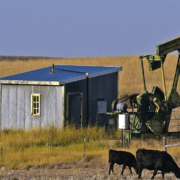According to Mohammad Sanusi Barkindo, secretary-general of OPEC, the enormous and unprecedented oil market imbalance facing the industry in April following the COVID-19 pandemic required an unparalleled response from producers
Underlining the importance of the two-year agreement signed in the Declaration of Cooperation (DoC) on 12 April by OPEC and non-OPEC oil producing countries and revalidated earlier this month on 6 June, Barkindo said he was confident that more stability would return to the oil markets in the second half of the year, but more work is needed to draw up existing oil inventories to help rebalance markets.
“As we see countries begin to open up, we will see demand start to come back,” Barkindo said. “I remain optimistic but cautious the worst is over and a recovery will be in full swing in the second half of this year, with stocks beginning to be withdrawn. However, what shape the recovery will take, whether a V shape, W or inverted hockey stick, is still uncertain.
“Nevertheless, I am hopeful by the end of this year we will begin to see some further semblance of stability restored to oil markets. Then we will be in a position to move into the next phase of sustaining that stability. Hence the importance of the two-year duration of the historic agreement signed by the OPEC Plus group of countries and non OPEC producers.”
Click here to read the full article.
Source: OilReviewAfrica



